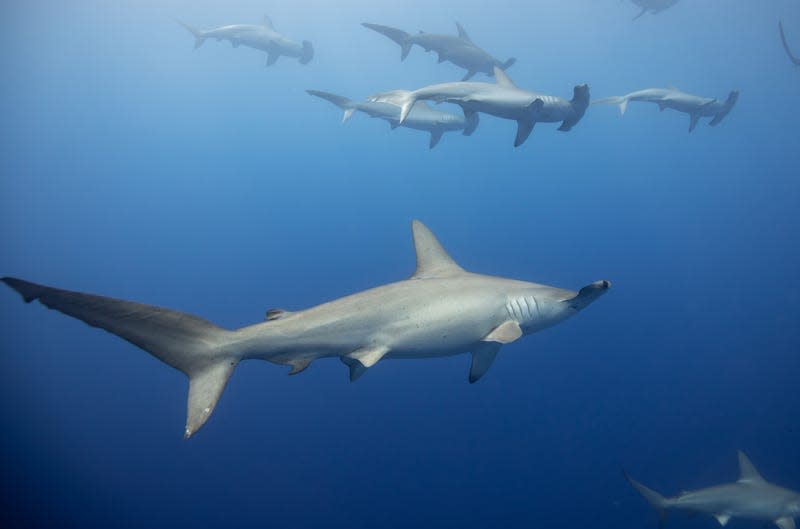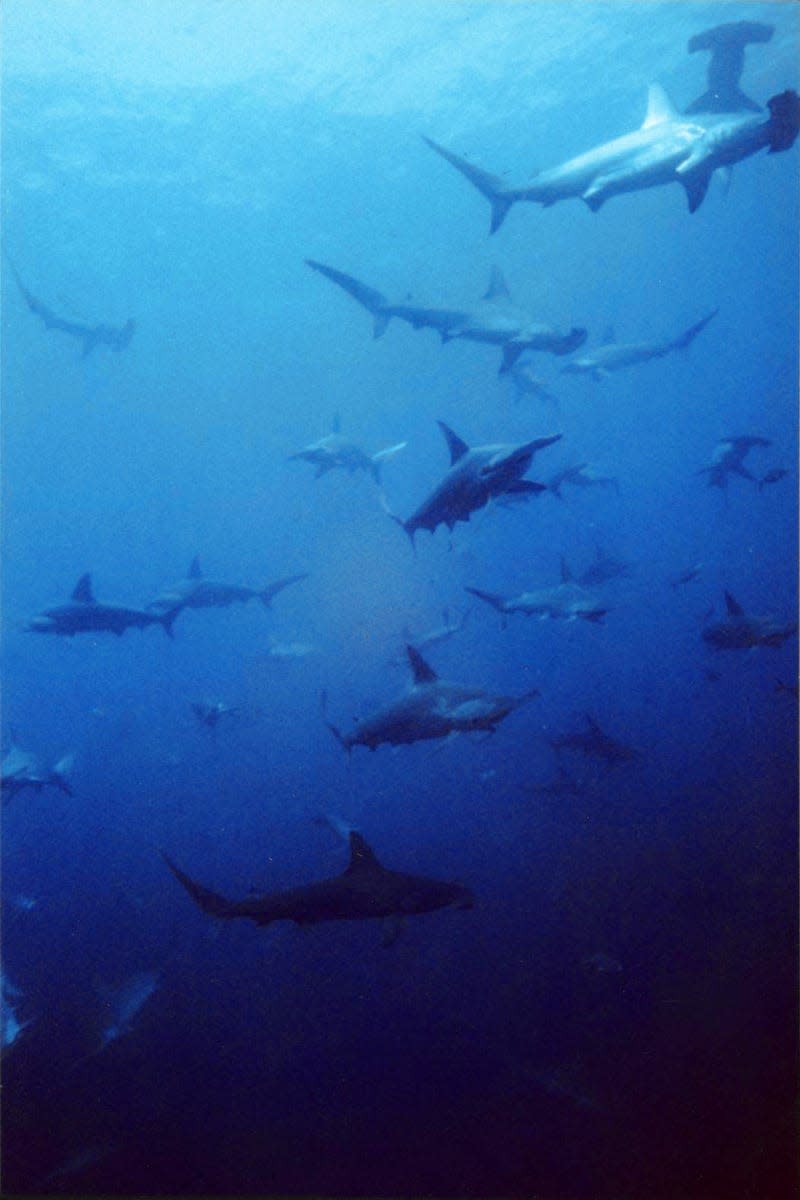Hammerhead Sharks 'Hold Their Breath' When Deep Diving

Hammerhead sharks off Hawai’i’s Big Island.
When hammerhead sharks begin some of their deepest dives, they do the piscine equivalent of what a human would do: they hold their breath.
Sharks don’t breathe air, of course, but they can close their mouths and gill slits on deep dives to maintain their internal temperatures as the warmer water near the surface gives way to the colder recesses of the ocean. New research describing this behavior is published today in Science.
Read more
These Winning Close-Up Photos Show Life That's Often Overlooked
Remembering Enterprise: The Test Shuttle That Never Flew to Space
“Although it is obvious that air-breathing marine mammals hold their breath while diving, we did not expect to see sharks exhibiting similar behavior,” said Mark Royer, a researcher with the Hawai’i Institute of Marine Biology’s Shark Research Group and the paper’s lead author, in a university release.
“This previously unobserved behavior reveals that scalloped hammerhead sharks have feeding strategies that are broadly similar to those of some marine mammals, like pilot whales,” Royer added.
Scalloped hammerheads (Sphyrna lewini) are an endangered species of large shark with a global distribution. They are not threatened in Hawai’i but are endangered in other parts of their range, mainly due to habitat loss, overfishing, and bycatch. The sharks are ectothermic, meaning that their body temperatures are regulated by the surrounding water temperature.

Though the hammerheads inhabit shallow coastal environments with temperate or tropical conditions—i.e., warm water—they’re known to dive to depths exceeding 3,400 feet, where water temperatures can be around 40 degrees Fahrenheit.
To track the sharks, the team implanted them with remote biologgers; the devices track the animals’ movements, activities, temperatures, depths, and the water temperature. The use of biologgers to track the behavior of animals deep in the oceans is keying scientists into never-before-seen phenomena. Last month, a different team of scientists revealed that elephant seals were taking naps on their deep-ocean dives, to get shut-eye on their multi-day sojourns at sea.
“An ongoing technological revolution in tagging, of which the study of Royer et al. is a part, is likely to reveal other insights into the physiology and ecology of sharks that may explain the extraordinary persistence of these animals across 400 million years of changing ocean environments,” wrote Mark Meekan and Adrian Gleiss, marine biologists unaffiliated with the recent paper, in an accompanying Perspectives article.
The sharks held their breath (so to speak) for 17 minutes on average, only spending about four minutes at the deepest parts of their dives before returning to warmer, shallower depths.
Royer noted that the sharks’ physiological abilities could protect them from changing ocean conditions, including ocean warming due to climate change and deep-sea mining and fishing by humans.
That said, the animals can only hold their breath for so long. And as we continue to prove, no species is safe from the destructive behaviors of Homo sapiens.
More: All the Species Declared Extinct This Decade
More from Gizmodo
Sign up for Gizmodo's Newsletter. For the latest news, Facebook, Twitter and Instagram.

 Yahoo News
Yahoo News 
